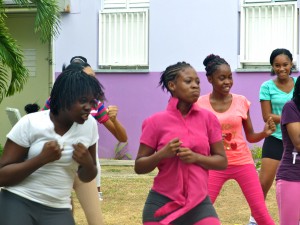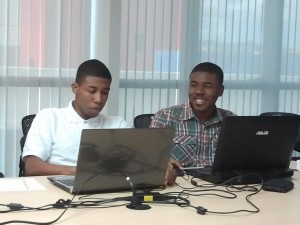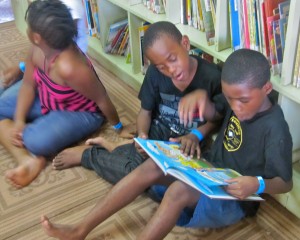
The Independent Spirit
August 5th, 2014
The Greek philosophers had a way of getting straight to the point. Here is one of those simple “no-brainers” from Socrates: “To find yourself, think for yourself.”
A few days ago I wrote in my blog about the internal aspect of Emancipation – in other words, the mental slavery part, with reference to that famous quote from Mr. Garvey. As the Independence holiday approaches, I am wondering: Are we (you and I) independent thinkers? Do we relate to our fellow citizens – and do we act – from a position of strength and self-belief? Or do we simply “go with the flow” most of the time?
When Jamaicans discuss the concept of independence, they often think politics, or even geopolitics. Some pontificate about “sovereignty” and shaking off the shackles of colonialism. Others question whether certain government agencies or public officials can ever be “independent” in their stance. And so on, and so forth. But when do we start considering our own personal sense of independence? I figure that independence and emancipation are closely linked. In a sense, independence is an extension of the state of being free; once we are liberated (whether by our own hand or others’ impetus) we take that next step towards thinking and acting for ourselves. And by that I do not mean selfishly – but from a platform of greater empowerment. This applies to governments – and to ourselves as individual human beings.

Young women at the I’m Glad I’m a Girl Foundation’s summer camp at Mary Seacole Hall last week warming up for a self-defense session with martial arts experts.
It is always interesting to observe the behavior of adolescents. You can see them working through their issues, their anxieties. They struggle with competing impulses and emotions and are always watching their peers, to see how they compare. At a summer camp last week organized by the I’m Glad I’m a Girl Foundation, the girls discussed and acted out resolving their conflicts. They were from varying backgrounds, and you could see them figuring out how they could (or should) relate to this shy girl, or to that one over there who was so loud. In their minds there is always something inside struggling to assert itself – to be free. And that is the essence of their being. So to deprive young people of that freedom to be who they are, to find that out for themselves and to understand themselves, is cruelty. And by the way, if we can recall those difficult years of being a teen – did any of us actually enjoy that part of their lives?

Young Jamaicans getting creative at the Digital Jam 3.0 Caribbean Edition in Kingston earlier this year.
I would suggest that for many young Jamaicans – and especially the girls – this stifling of spirit takes place in many ways. The education system is at the heart of it; the adherence to the traditional “chalk and talk” method and the fixation on passing examinations. Out there in the community, there are many other ways in which young people are pressed to conform. For some, there is the rigidity of the church regime, which takes up several hours of each week that the young person could perhaps spend doing something more creative. There is the “discipline” that their parents inflict on them, often mentally and physically abusive. For others (especially the girls) there is the obligation to dress up like adults and to display themselves as possible future sexual partners – what is called “grooming.” The children (and they are still children) strike a “sexy” pose for their photographs, one hand on a hip and the other on their knee. We have all seen photographs of girls from age six or seven upwards doing this. They think it is expected of them. The boys must do their macho stuff, too.
Is that who they are, all of them, as individual human beings? Where is their spirit breaking through?
Our son went to good schools in Jamaica, and at age fourteen won a scholarship to attend another good school – near Boston, Massachusetts. After a few weeks we had a phone call from his advisor. He told us there was a problem, and we immediately became anxious. A problem? Drug-taking? Alcohol? General misbehavior? The rules were very strict at this boarding school. No; the problem was that our son was not speaking in class. He sat quietly and wrote things down. He did not ask questions, and his teachers expected him to do so, to participate. They were all seriously worried about him. In the time-honored Jamaican tradition, our son was listening and writing everything down dutifully, word for word. He was not thinking critically. He was very polite, very pleasant – but there were no sparks ignited. And at age fourteen, this should have been happening.
Of course, as our son settled down in the United States education system, he became gradually more assertive. But it took time. From an early age, he had been told to listen, absorb, and then regurgitate the information as and when required. If he did have a question, he would put up his hand and say (not too loudly), “Miss…” and hope she would notice, and listen.
I believe that perhaps the Jamaican system is changing (I did hear the Education Minister refer to “critical thinking” the other day). But this kind of “children must be seen and not heard” approach had not helped our son and his Jamaican classmates to think fearlessly, critically. If someone were to ask them, “Well, what is your opinion? Can you argue for or against this?” they would become tongue-tied. What are they expected to say? What would be the correct response? The answer is: There is no correct response. Express yourself, your thoughts, your feelings.
One of my favorite books growing up in England was “Jane Eyre” by Charlotte Bronte – a young woman growing up with all the restraints of life in Victorian England. Jane, who struggles in similar circumstances, declares at one point: “I am no bird, and no net ensnares me; I am a free human being with independent will.”
You are not right or wrong, correct or incorrect. You are independent. You are free.
Adults need to learn this, too. So let us embrace our own independence on August 6, Jamaica’s proud Independence Day!
Tags: I'm Glad I'm a Girl Foundation, Independence, Jamaica, Mary Seacole Hall
The Gleaner reserves the right not to publish comments that may be deemed libelous, derogatory or indecent.
To respond to The Gleaner please use the feedback form.
8 Responses to “The Independent Spirit”
- We Are the Zoomers
- Living Online with Humans and Birds: NAOC 2020
- Human Trafficking and the Problem of Public Education
- Down Memory Lane
- Are We Ready to Recover from COVID-19?
- Road Safety Matters: Is Your Vehicle Safe?
- Sexual Harassment, Me Too, and the Minister’s Disturbing Giggle
- The Vulnerable Senior Citizens, Private Care Homes and COVID-19
- A Muddle Over Masks
- Here is Something Life-Saving You Can Do: Give Blood!




well put together article, Emma, well thought out. I agree, it is past time we do away with the programming we bow our kids under, and allow them to spread their wings. The can do anything they choose to do, only bounded by their imagination. Yes, the world needs us, but it needs us to do whatever it is that fires our spark. Once we concentrate on following our dream, money becomes no object
Thank you, Jeremy. Yes, that is what I was trying to get at in my article. Children must have that freedom to explore. Thank you for your comments.
These are valid thoughts for consideration on the eve of celebrating our Independence. 52 years on and there are many things for us to consider as we evaluate as a people what Independence and independence mean for us.
Absolutely, Susan. This is just one small aspect of how we need to look at independence, and what it means for us as people.
Truth, brillianly written. We need to create environments in our homes, schools & churches that enables all to be critical thinkers. We as the parents of Jamaica’s youth, should begin by being independent thinkers ourselves. Everything begins with you, one person & then the critical mass will follow. Can we be truly independent in our thinking, when we continue to foster divisions within our society,i.e. politics, skin color, uptown/downtown, ‘big/little man, etc. Independent thinking will only be realised when we empower ourselves & take responsibility for where we are, NOW.
Absolutely! Very well put. And thank you so much for your comments. We must get out of that “herd” mentality…
I couldn’t agree more about the kids needing.g a chance to “explore” and Enjoy life by having different “trades” that they’ll be able to us to be self sufficient. That’s why I’m starting a Nonprofit
Organization to help them do just that!!!
If you’d like to more a out it co n tact me on. LinkedIn.
Thank you so much for your comment, Jake. I will definitely look you up regarding your new non-profit. Yes, I think I personally believe in this kind of education – the freedom to learn for oneself – because that is the kind of early education I had myself, at an “experimental” school…